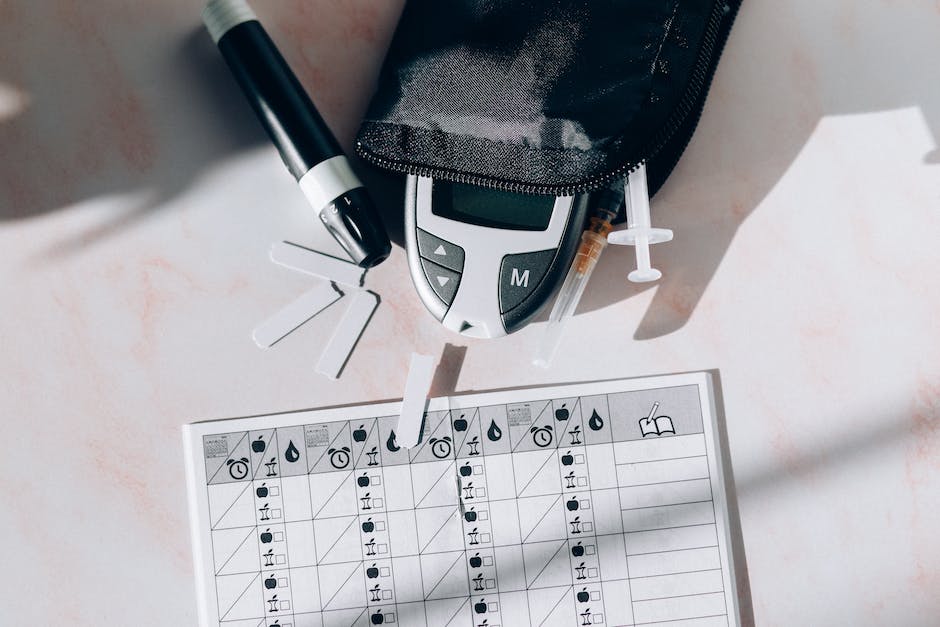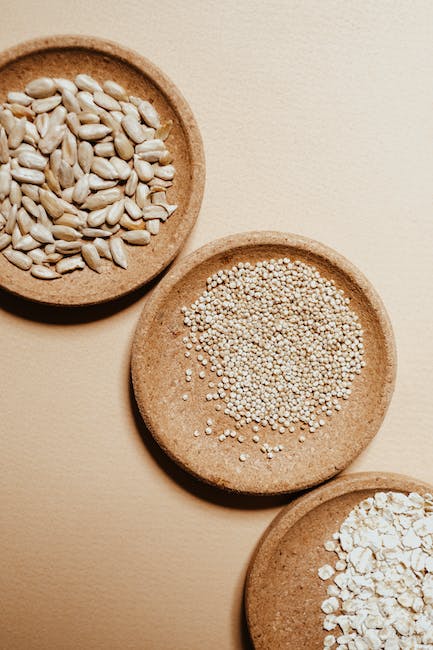You know how they say you are what you eat? With a low-carb diet, you can become healthy and energetic! With more and more people getting on the low-carb bandwagon, let us guide you on how to make this a part of your lifestyle. From understanding carbs, to making better food choices and creating a meal plan, has all the information you need to begin leading a healthier and eco-friendly lifestyle. Let’s dive in!
1. Clearing Up Misconceptions About Low-Carb Diets
Low-carb diets have become one of the most popular diet fads in recent years. Unfortunately, due to poor understanding, many misconceptions about this type of eating have arisen. This post aims to clear up some of these misunderstandings:
1. Low-carb diets are all about deprivation. On the contrary, a low-carb diet should never leave you feeling deprived. A low-carb diet makes an effort to replace processed carbs with protein, fats, and healthy carbohydrates such as leafy greens, most vegetables, non-starchy fruits, and legumes. The goal is to eat more real, natural, nutrient-rich foods that energize your body and keep you satisfied.
2. Low-carb diets are unhealthy. Low-carb diets are usually higher in fat than other diets. However, many studies have focused on the importance of good quality fats, such as nuts, seeds, olive oil, avocado, and fatty fish. Eating these types of nutrient-packed fats can help reduce inflammation, improve heart health, and help you feel full and satisfied.
3. Low-carb diets are hard to stick to. Many people find that the restrictive nature of a low-carb diet makes it very easy to stick to. You don’t need to count calories, and when you eat nutrient-dense, unprocessed foods that are high in protein and low in carbs, you usually end up feeling fuller, longer. This means that you will be less likely to break your “diet.”
Low-carb diets can be an effective way to lose weight, improve health, and increase energy levels. With the right information, it is easy to dispel a few of the biggest misconceptions about this type of diet and make the most of its benefits.

2. Benefits of a Low-Carb Lifestyle
Living the low-carb lifestyle has gained a lot of attention lately, and for good reason. Going low-carb may help reduce body weight, lower blood sugar levels, and lead to improved heart health. Here are a couple of top benefits to adopting this lifestyle.
Improved Weight Loss and Management
Adopting a low-carb lifestyle dictates limiting one’s intake of carb-containing foods, i.e., breads, cereals, rice, pasta, etc. Doing so helps reduce calories and eliminates sources of fast-digesting carbs, which leads to improved weight loss. Studies also suggest that going low-carb may result in a greater decrease in abdominal fat than other weight-loss diets.
Reduced Risk for Diabetes and Heart Disease
Research indicates that low-carb diets may improve blood sugar control and help prevent type 2 diabetes. Studies have also shown that reducing carb intake may decrease inflammation, cholesterol levels, and markers of heart disease. For people who have already developed diabetes, going low-carb may help reduce the amount of medications needed to control blood sugar levels.
- Greater weight loss
- Improved management
- Reduced risk for diabetes and heart disease
For those looking to directly control blood sugar and body weight, adopting a low-carb lifestyle could prove to be an effective dietary approach.

3. Tips for Transitioning to a Low-Carb Diet
Firstly, start small. Transitioning to a low-carb diet can be a daunting concept if you’ve been consuming carbs your whole life. Luckily, it doesn’t have to be an all-out change overnight. Start small and ease your body into the transformation. Experiment with one or two low-carb meals every week before transitioning to a fully low-carb diet.
Secondly, create a low-carb grocery list. Ready your body for low-carb meals by stocking up on the right ingredients. This can include items such as low-carbohydrate vegetables, lean proteins, and healthy fats. Preparing a shopping list will make grocery trips easier and help keep your kitchen stocked with low-carb options.
Finally, don’t forget to plan your meals. Meal prep can be an incredibly helpful tool when transitioning into a low-carb diet. It can also save you time, reduce your stress, and help you stay on track. Make a weekly plan for breakfast, lunch, dinner, and snacks. Take into account each meal’s macronutrient distribution and the overall effect it will have on your body.
4. What You Can Eat on a Low-Carb Diet
When it comes to low-carb diets, it can seem like you have to give up all the foods you know and love. But that doesn’t have to be the case! There are plenty of delicious dishes you can still enjoy – all while getting the power of the low-carb diet.
Vegetables: Eating plenty of non-starchy vegetables is a must on a low-carb diet. Think salads, cruciferous veggies like cauliflower, broccoli, and brussels sprouts, onion, garlic, kale, and arugula. All are low in carbs and packed with vitamins and minerals. Green leafy vegetables like spinach and Swiss chard are also a fantastic option.
Protein: When going low-carb, it’s important you don’t skimp out on protein. High-protein dishes are what will keep you feeling full and your metabolism running smoothly. Some great sources of protein for a low-carb diet include:
- Eggs
- Beef
- Pork
- Poultry
- Fish
- Tofu
- Hemp seeds
- Tempeh
- Nuts and seeds
Just remember, some protein sources are higher in carbs than others, so watch your portion sizes and check package labels closely.
5. Low-Carb Meal Ideas
Eating a low-carb diet doesn’t have to be boring – there are plenty of delicious meals that let you enjoy flavorful dishes without going off your plan. To help you brainstorm some tasty lunch and dinner recipes, we’ve put together this list of yummy :
- Oven-baked salmon with roasted vegetables: Salmon offers a great source of omega-3 fatty acids and protein and is incredibly tasty when baked in the oven. Serve with roasted veggies such as bell peppers, onions, and cherry tomatoes to add flavor and bulk.
- Zucchini noodles with creamy pesto sauce: This healthier spin on a classic pasta dish swaps noodles with zero-carb zucchini “zoodles.” Toss them with a creamy pesto sauce for a delicious, light meal.
- No-bread tuna sandwich: Who doesn’t love a good tuna sandwich? This low-carb creation uses thick cucumber slices in place of bread, and adds chopped cherry tomatoes and a tablespoon of mayonnaise for a creamy flavor boost.
- Shrimp stir-fry: Load up on antioxidants and other nutrients with this dish, made with shrimp, vegetables, and a low-carb stir-fry sauce. Serve on a bed of cauliflower, broccoli, or zucchini “rice” for an extra low-carb boost.
- Turkey wrap: This wrap gives you all the flavors of a taco without the tortilla. Layer your favorite taco ingredients such as shredded cheese, diced tomatoes, and bell peppers onto a lettuce leaf, then top with a few slices of cooked turkey.
Above are just a few ideas – there are so many creative and nutritious low-carb meals out there. Even if you have to go low-carb, you don’t have to sacrifice flavor or satisfaction. Bon appétit!
6. Concluding Thoughts: Why Go Low-Carb?
Going low-carb is a lifestyle choice that has many great benefits for overall health and well-being – not to mention longevity. As research continues to show, eating a diet low in carbs has been linked to better mental health, increased physical performance, and healthier body composition.
Apart from the various physical benefits, there are also plenty of psychological rewards that come with going low-carb. When you are no longer relying on sugar and processed carbs to make you feel full, you can take a greater appreciation for the taste of real food. Additionally, it can help you to feel more in control of your eating habits, as carbs tend to be highly addictive.
If you’re considering switching to a low-carb diet, then here are a few major takeaways:
- It can be a long-term dietary solution: a low-carb diet isn’t a fad – it’s built on reasonable principles of nutrition, and it can help many people to lose weight and keep it off.
- It can help to improve your wellbeing: high-carb diets have been linked to a variety of chronic illnesses, so going low-carb can reduce your risk of developing these. Plus, it can help to boost your energy levels and mood.
- It can help to break bad eating habits: carbs tend to be very addictive, so reducing your intake can help you to break this cycle and develop healthier, more mindful eating habits.
Ultimately, going low-carb isn’t necessarily for everyone, but for those looking to take control of their diet and make lasting lifestyle changes, it could be just the thing.
Switching to a low-carb diet can be difficult in the beginning – but it’s worth it! Your health and overall wellbeing will thank you as you make your way on this exciting new journey. With focus, dedication, and a commitment to healthy eating, eating low-carb can have substantial life-changing benefits that you’ll be thankful for. From better energy and improved mental clarity, to a stronger, healthier body – the rewards of shifting towards a low-carb diet are manifold!
